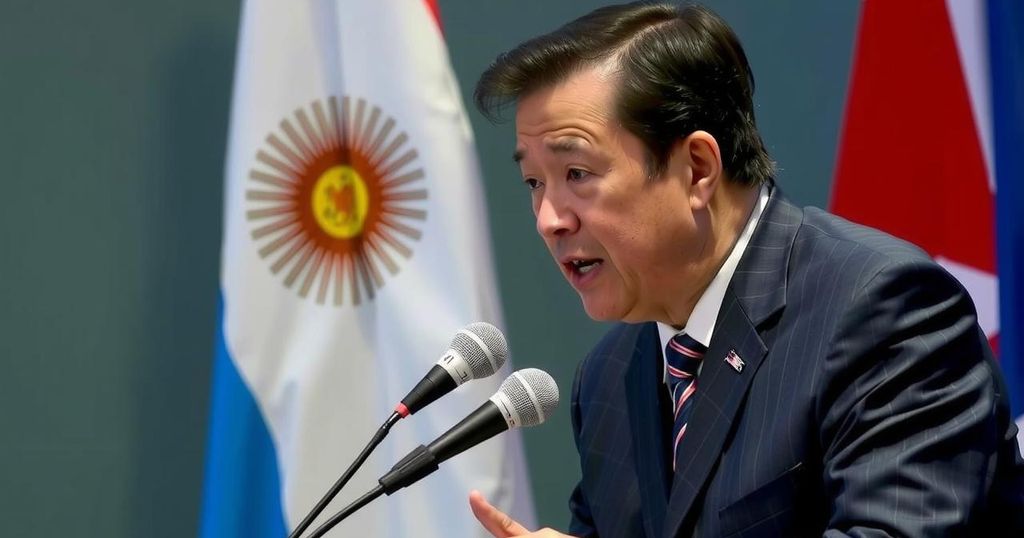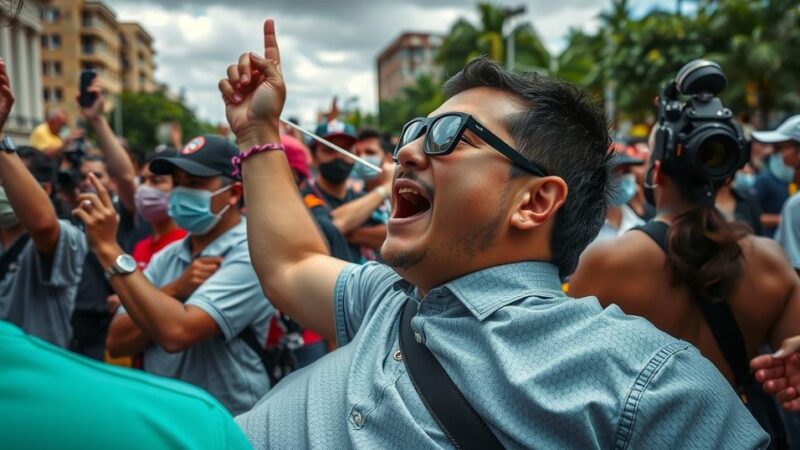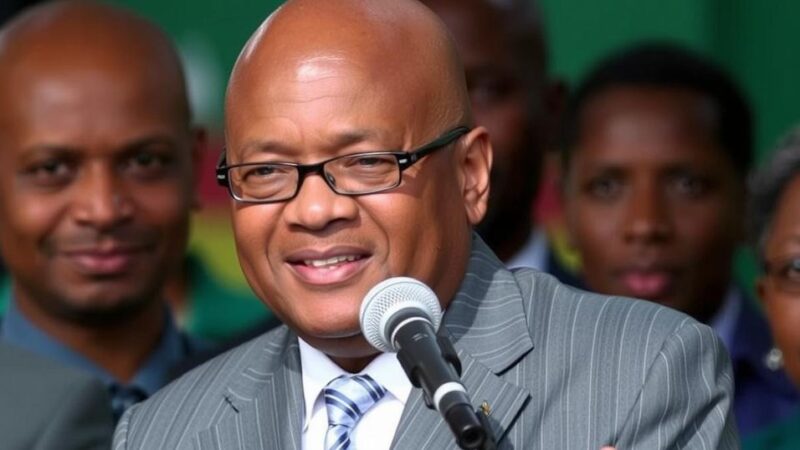Argentina’s President Javier Milei has terminated Foreign Minister Diana Mondino after the country’s support for a UN resolution calling for the end of the U.S. embargo on Cuba. This decision marks Argentina’s first departure from alignment with the U.S. since Milei took office. Mondino’s successor is Gerardo Werthein, who has been tasked with implementing a foreign policy that explicitly denounces the Cuban government and promotes human rights. This move reflects a broader shift in Argentina’s diplomatic approach under Milei’s leadership.
In a significant reshuffling of his administration, Argentine President Javier Milei has dismissed his foreign minister, Diana Mondino, following Argentina’s supportive vote in favor of a United Nations resolution aimed at lifting the United States’ economic embargo on Cuba. On a recent Wednesday, Argentina was among 187 nations endorsing the non-binding resolution, while only the United States and Israel voted against it. This marks a notable departure from the foreign policy stance observed during Milei’s presidency, as it represents the first occasion in which Argentina has not aligned itself with the U.S. and Israeli governments since the president took office. President Milei has appointed Gerardo Werthein, who previously served as Argentina’s ambassador to Washington, as Mondino’s successor. Following her termination, Milei’s office released a statement denouncing the “Cuban dictatorship” and asserting that Argentina would firmly uphold a foreign policy that condemns regimes implicated in human rights violations. Under the preceding left-leaning Peronist administration, Argentina had maintained cordial relations with Cuba, advocating for the termination of the U.S. embargo that has been in place since the 1960s, amid Cuba’s adoption of communist governance. This diplomatic support is noteworthy as Cuba has historically backed Argentina’s claims of sovereignty over the Falkland Islands, a territory that has been a source of contention between Argentina and the United Kingdom since the conflict in 1982. In outlining the rationale for these changes, Milei’s administration emphasized that the country is experiencing a “period of profound changes,” necessitating a diplomatic corps that embodies the values of freedom, sovereignty, and individual rights characteristic of Western democracies. Observers have noted that tensions between the president and the foreign ministry had been escalating over various issues prior to Mondino’s firing, despite her role in managing Argentina’s international image, often mitigating the impact of Milei’s controversial remarks on foreign relations. The U.S. trade embargo, first implemented in 1962 after Fidel Castro’s rise to power, aimed to compel Cuban authorities to abandon socialist reforms in favor of capitalism and democracy. However, the embargo’s enduring existence has not achieved its objectives and remains a contentious issue within the region.
The recent political move by President Milei sheds light on the evolving diplomatic landscape of Argentina, particularly concerning its stance on Cuba. Historically, under previous administrations, Argentina nurtured strong diplomatic ties with Cuba, supporting efforts to dissolve the enduring U.S. embargo that had been characterizing the relationship between the two nations since the Cuban revolution in the 1960s. Milei’s administration is positioned in stark contrast to this, as it seeks to position Argentina firmly against what it perceives as human rights violations under the current Cuban regime. Such shifts reflect broader geopolitical tendencies and the impact this could have on regional diplomacy, especially considering Cuba’s historical support for Argentina in its claim over the Falkland Islands against British sovereignty.
In conclusion, President Javier Milei’s dismissal of foreign minister Diana Mondino highlights a decisive shift in Argentina’s foreign policy, particularly regarding relations with Cuba and the U.S. By supporting a UN resolution aimed at lifting the embargo, Argentina has diverged from traditional alignments with the United States and Israel. This change is underpinned by Milei’s administration’s commitment to promoting values consistent with Western democratic ideals while underscoring the condemnation of regimes accused of human rights abuses. This development signals a new chapter in Argentina’s diplomatic relations and sets the stage for potential reconfigurations in international partnerships moving forward.
Original Source: www.bbc.co.uk






